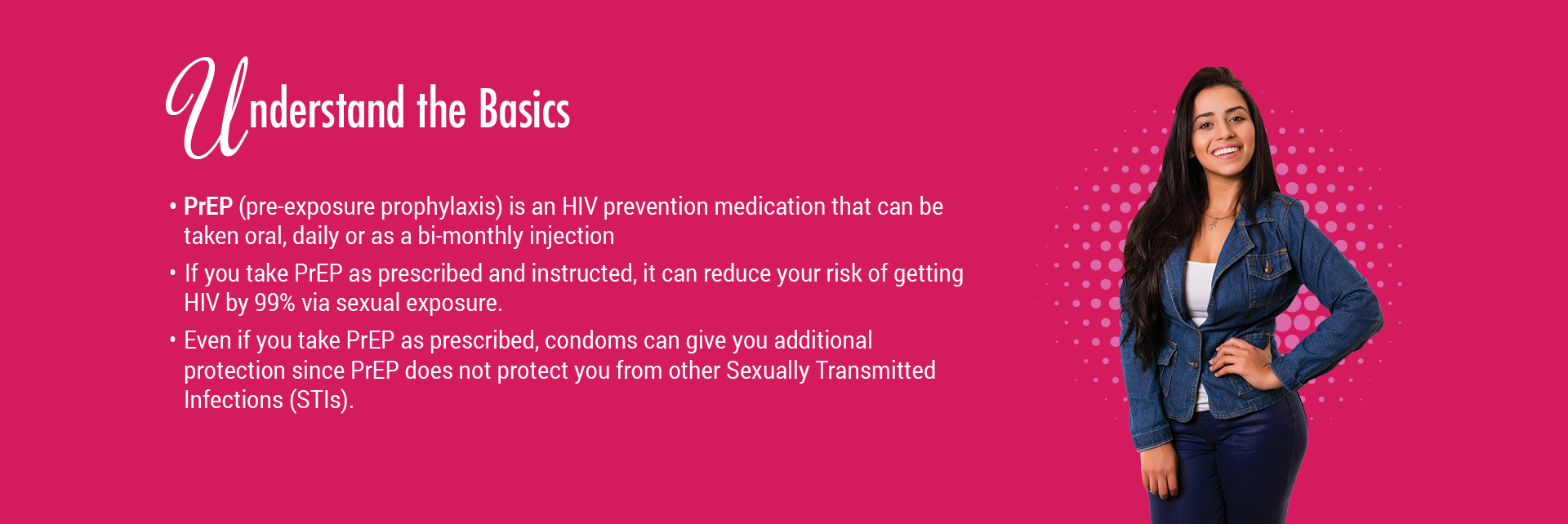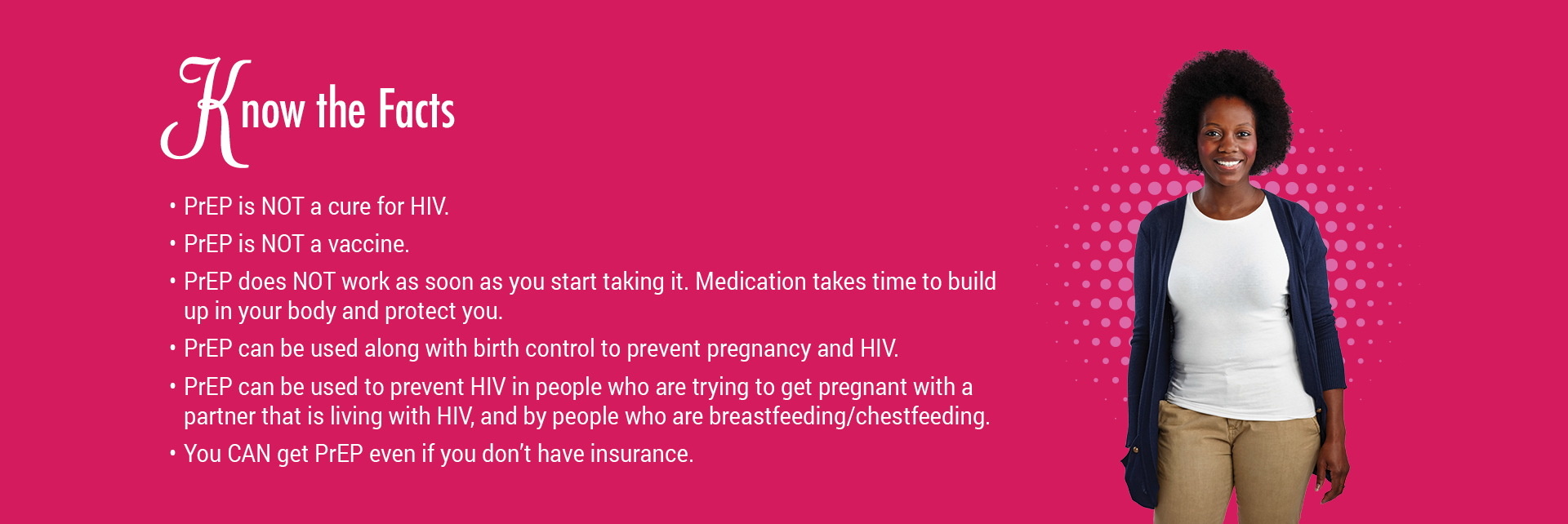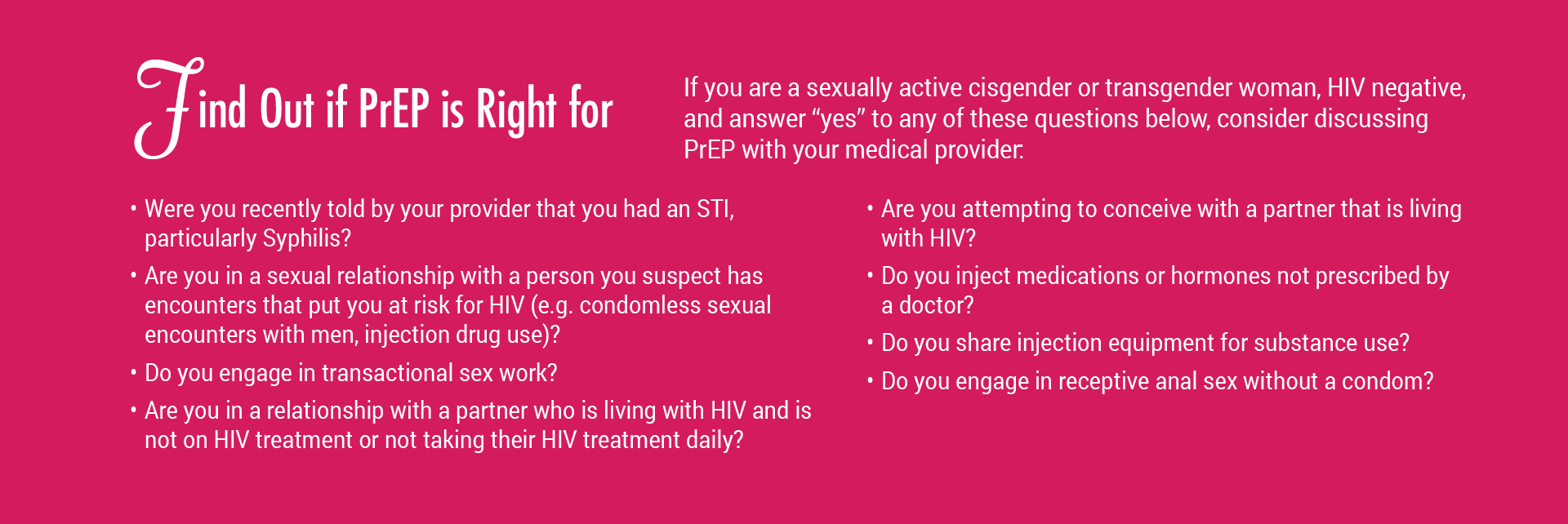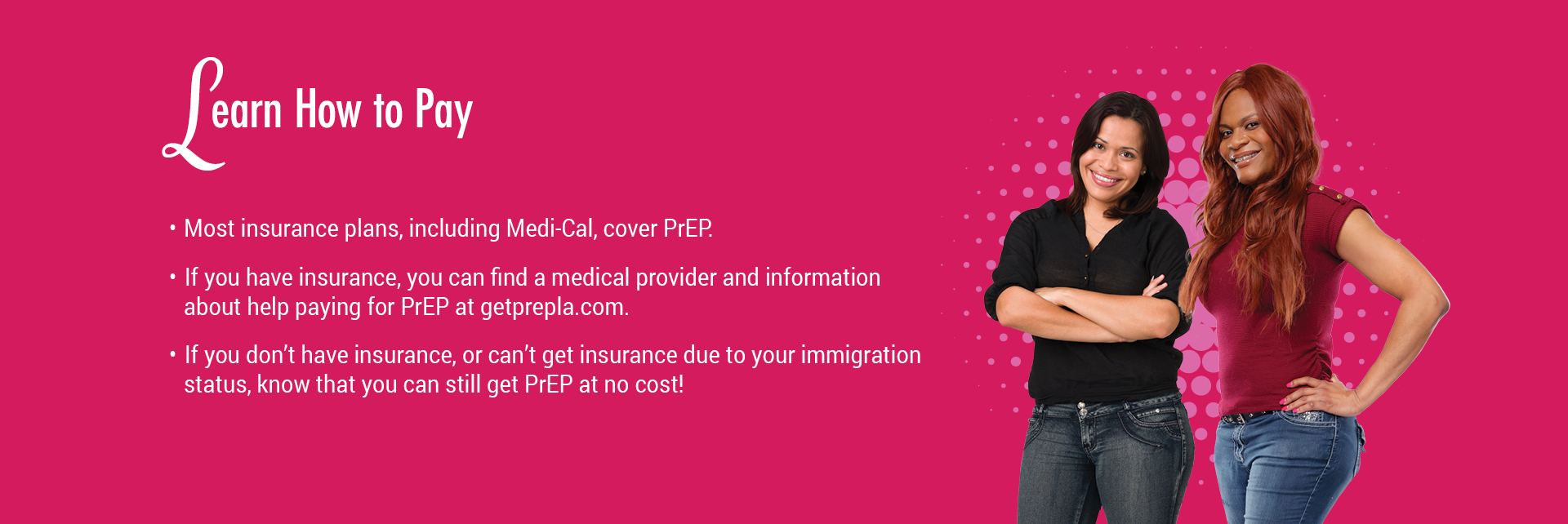What is PrEP?
PrEP stands for pre-exposure prophylaxis. It is the use of medication to prevent HIV transmission. PrEP is used by people who do not have HIV and have concerns of being exposed to HIV through sexual contact or injection drug use.
How is PrEP used?
- PrEP is taken one-time a day by mouth or can be prescribed as a bi-monthly injection.
- Taking PrEP also requires talking about HIV prevention options with an HIV testing counselor, or medical provider, and getting tested for HIV and STIs.
- Frequency of testing depends on oral or injectable options.
- People taking oral PrEP return to see their providers every three months for HIV and STI testing.
- People taking injectable PrEP see their providers every other month for HIV and STI testing and injection administration.
- Also, because PrEP only protects against HIV, condom use is recommended to protect against other STIs (chlamydia, syphilis, gonorrhea, etc.).
Who is PrEP for?
PrEP is for anyone who is sexually active.
If you are a cisgender, or transgender woman, consider PrEP if you:
- Are in a relationship with a person who is living with HIV that is not virally suppressed and is:
- not taking HIV treatment OR;
- is taking HIV treatment but is not virally suppressed (or has detectable levels of HIV in their body) OR;
- is within 6 months of initiating HIV treatment.
- Are in a relationship with a person who is living with HIV where the person capable of pregnancy is trying to get pregnant.
- Have been recently diagnosed with early syphilis. (Studies show that 55%-60% of syphilis cases in LA County occur in people living with HIV, so a recent syphilis diagnosis may show an increased risk for HIV)
- Engage in transactional sex.
- Share injection drug equipment for substance use.
- Share injection equipment for hormones that are not prescribed by a medical provider.
- Are in a relationship with a man who has sex with other men or is suspected to be having sex with other men.
Even if you have no factors that put you at risk for HIV, you can still request a prescription for PrEP.
How important is adherence to PrEP for women?
Adherence is important for cisgender and transgender women and all patients on PrEP. Studies show that excellent adherence for cisgender women (taking PrEP 6 days out of the week) is critical in order to reach protective levels in cervical and vaginal tissue.
How quickly does PrEP provide protection?
Studies suggest that women need to take PrEP for:
- At least 7 days to provide protective levels if they are having anal sex.
- At least 21 days to provide protection if they are having vaginal, or “front hole”, sex.
There is currently still no available data on how long it takes injectable PrEP to take effect.
Is PrEP safe for women?
Yes, Truvada is the only FDA approved oral pill that can safely be taken by cisgender and transgender women. Additionally, Apretude is FDA approved injectable PrEP that can be safely taken by cisgender and transgender women to prevent HIV via sexual transmission.
Descovy for PrEP is not FDA approved to be taken by cisgender women or people assigned female at birth.
Does PrEP interact with hormone-based birth control?
No, current studies show that PrEP does NOT affect hormone-based birth control.
Will taking PrEP interfere with my hormone therapy?
Currently, there is no evidence to show that PrEP will interfere with estrogens in hormone therapy. However, more research is needed to better understand the relationship between taking estrogens and PrEP.
Can a cisgender woman take PrEP while attempting to get pregnant and/or during pregnancy?
Yes, cisgender women can take PrEP when attempting to get pregnant and/or during pregnancy. The Center for Disease Control and Prevention (CDC) recommends PrEP as an option to reduce the risk of HIV transmission from a partner who is living with HIV during conception. The CDC also recommends that cisgender women with ongoing risk of HIV continue PrEP throughout their pregnancy and breastfeeding/chestfeeding to protect themselves and the infant.
Can a woman breastfeed while on PrEP?
Yes, PrEP is safe to use while breastfeeding/chestfeeding. No negative side effects have been found among infants exposed to PrEP when the medication was taken as part of the treatment for cisgender women living with HIV during pregnancy or during breastfeeding/chestfeeding. Studies show that infants are exposed to very small amounts of PrEP during breastfeeding.However, no long-term safety studies have been done to determine the long-term health effects.
Who can prescribe PrEP?
Any licensed medical doctor, nurse practitioner, or physician assistant can prescribe PrEP. Specialization in HIV Medicine or Infectious Disease is NOT required. All primary care providers and OB-GYNs are strongly encouraged to discuss PrEP as an safe and effective HIV prevention option for cisgender and transgender women.





